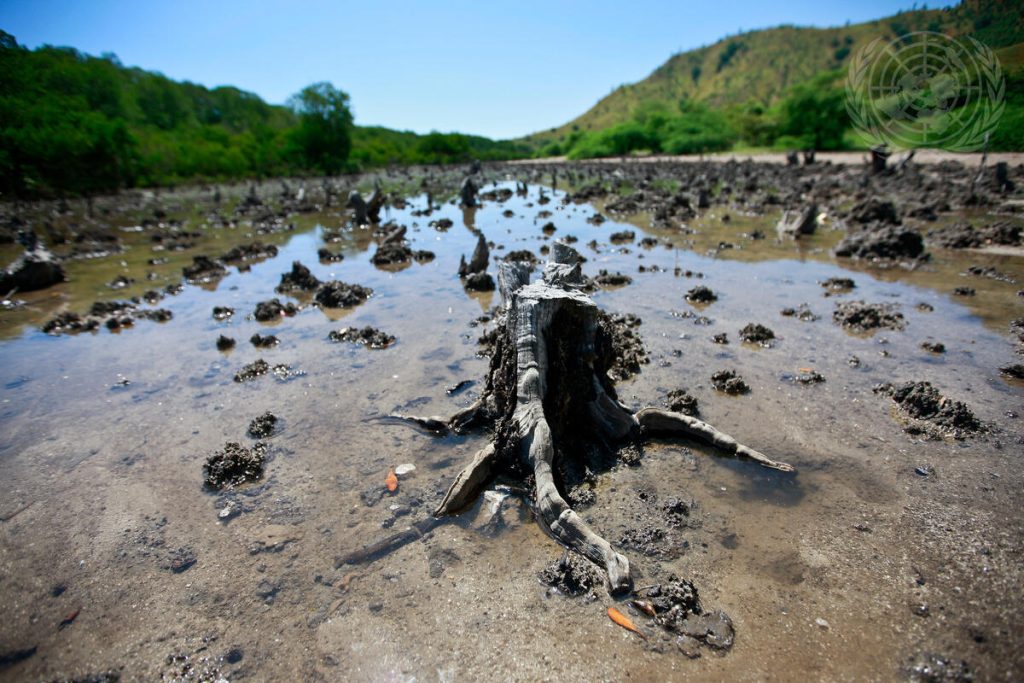Programme Manager, Sustainable Grenadines Inc Kristy Shortte, while speaking on climate change has expressed concerns that the destruction of mangroves across six hectares of shoreline is not merely an environmental disaster but that It jeopardises the fragile balance of biodiversity.
These coastal forests are home to over 25 species of migratory and resident birds, as well as rare green turtles, making their loss all the more troubling.
This comes as the International Organisation for Migration (IOM) described Hurricane Beryl as the earliest recorded Category Five hurricane in the Atlantic’s history which unleashed widespread devastation across the Caribbean in 2024, displacing thousands and leaving communities in dire straits.

Union Island, home to the largest mangrove ecosystem in the Grenadines, was hit especially hard, with reports indicating that a staggering 90 percent of these vital coastal forests were severely damaged.
Kristy who has spent years dedicated to restoring this crucial habitat is now at the forefront of this restoration effort.
Mangroves are invaluable, not only providing refuge for marine life but also acting as a natural barrier against storms and coastal erosion.
Shortee said it was time the people accept that climate change is no longer a distant threat and start preparing by stronger building codes and improving storm weathering.
The rapid intensification of Hurricane Beryl from a tropical depression into a major hurricane with winds exceeding 160 mph in just 42 hours highlights the significant role of warmer ocean temperatures in driving extreme weather events tied to climate change.
The aftermath of Beryl has left communities devastated with farmer and trader working to overcome the impact on their farms and business
This call to action resonates throughout the region, where many are experiencing firsthand the catastrophic effects of climate change.
The link between climate change and displacement is becoming increasingly apparent.
Caribbean nations, with around 70 percent of their populations residing in coastal areas, are particularly vulnerable. Rising sea levels and intensified storms present severe threats to both livelihoods and infrastructure.


